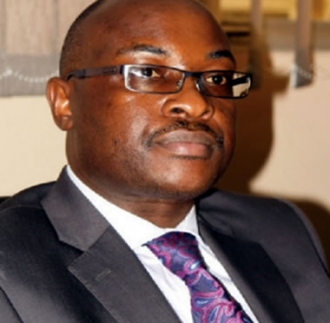Former Managing Director of the Nigerian Railway Corporation (NRC), Engineer Seyi Sijuwade, has criticised the ongoing practice of internal investigations into rail accidents, warning that it compromises safety and fosters falsified reporting.
Speaking at the NSIB Multimodal Transportation Stakeholders Workshop in Abuja, Sijuwade described the current approach to rail incident inquiries as flawed and unaccountable. Themed “Strengthening Transport Safety Standards Through Collaboration,” the gathering convened key players across transport sectors to discuss an integrated national safety strategy.
Drawing on his experience in rail operations, Sijuwade called attention to recurring conflicts of interest. He observed that incidents are often investigated by staff directly involved in the operations, which distorts findings and shields senior officers from scrutiny.
“We have seen cases where train drivers remain loyal to their line managers. When faults occur due to poor maintenance, the reports often protect those in charge. Investigations led by operational staff cannot guarantee truth or objectivity,” he said.
He argued that this internalised process damages both institutional integrity and public safety. Departments under pressure to maintain operational schedules rarely prioritise thorough investigations, leading to missing evidence or suppressed findings.
“Those operating the trains should never be the ones probing accidents involving the same trains. Critical evidence disappears. And not by coincidence. It’s driven by fear of punishment and the instinct to shield colleagues,” Sijuwade stated.
He called for a shift towards external, expert-led investigations, stressing that the Nigerian Safety Investigation Bureau (NSIB) must take the lead in all transport-related incident reviews.
“When a crash happens, the first point of contact should be the NSIB. Not the police. Not security agents. Because the Bureau’s objective isn’t to assign blame — it’s to uncover causes and prevent recurrence.”
Sijuwade cited the United Kingdom’s rail safety architecture as a reference. He explained that in the UK, responsibility for operation, regulation, and investigation lies with separate, independent bodies, ensuring checks and accountability across the board.
“In the UK, you have the Office of Rail and Road for regulation and the Railway Accident Investigation Branch for probes. Neither operates trains. Here, the NRC does all three. That must change,” he added.
He also called for the establishment of an enforcement agency to support the NSIB by ensuring safety recommendations are acted upon. He noted that too many investigation outcomes are ignored, especially when the agency responsible for the incident is left to implement reforms.
“NSIB cannot enforce its findings. Yet we expect the same institutions that caused the accident to correct themselves. It’s a dead end. We need a regulatory body that accredits, monitors, and enforces compliance.”
On the role of the public, Sijuwade acknowledged that passengers and frontline staff rarely report unsafe practices due to fear of reprisals. He urged the creation of anonymous reporting channels and safeguards for whistleblowers.
He further recommended that the NSIB enter formal agreements with emergency response agencies such as the police, DSS, and fire service, to define clear roles and protocols when responding to transport accidents across modes.
“This engagement must not end with a workshop,” Sijuwade said. “We need ongoing collaboration, full publication of findings, and open communication with the public. That’s how we build a credible safety system.”









